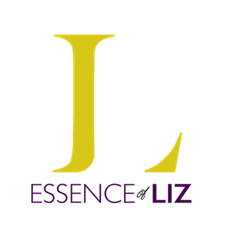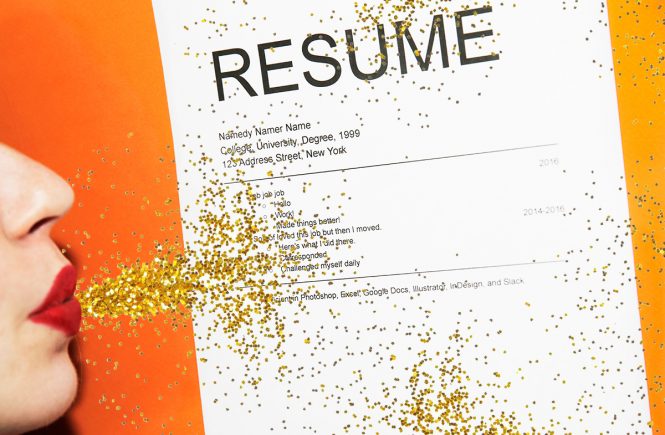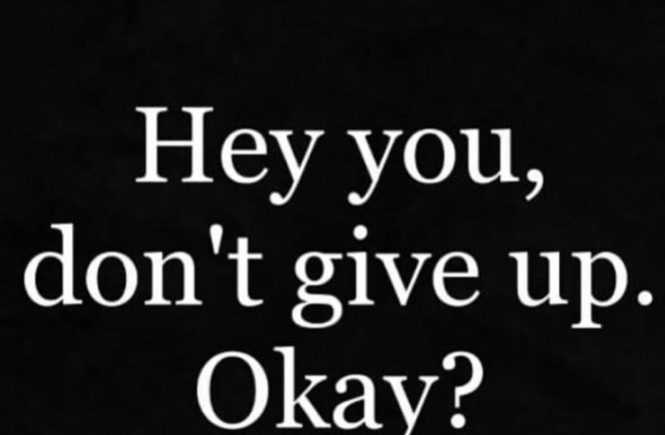The month of February is known for numerous holidays and events such as Black History Month, Mardi Gras, Valentine’s Day, President’s Day, Fashion week, NBA All Star Weekend, School Vacation, uhhhhh I think you get the point. Though, these holidays and events are great for some people, for others it is just another day of acknowledging they don’t have a job. Another day wondering why they haven’t received a call back from the multiple job applications they sent out. Another day waiting to hear back from the company(s) they just interviewed for. Another day desiring to leave the company they work for to do something else. This is not a post meant to bring you down during your joyous and lovely time of the year but it is meant to help people who may need additional help. For those who are not afraid to take advice and apply themselves to gain possibly a better result.
At 26, with the help of others (actually one individual in particular), I have probably revamped my resume countless times since the age of 15. That is 11 going on 12 years of experiences, learning, working, mistakes, and applying to multiple positions. I knew by the age of 22, I had to learn to take my resume writing seriously. I did my research on resume development learning why some resumes make it to a hiring manager’s email and others don’t make it past the online screening process. I mean honestly everyone knows how to write a resume, right?!?! Actually, people may know, but they do miss important things!
I mean, is there a class offered to students on proper resume structure? Is that a mandatory class or course? I wish I were able to sign up for that class because I had no idea what I was doing.
Think of a resume as a piece of paper with information on it about you that when a stranger reads it, they’re like “I have to meet you”. Whether, you have a plethora of experiences to a least amount, it doesn’t matter, your resume should display your professional greatness. So, through trial and error, I would like to share with you 5 things that I have learned over the years to help me improve my resume. If you ask other people, they will probably have their own opinion or add on to these points. You can agree or disagree with my points, but they have shown to be effective for myself and others I have helped. Also, I share a helpful link to follow 4 out of 5 of the points.
1. TYPES OF RESUMES: The are 3 main types of resumes.
- Chronological Resume: This type of resume is usually easy to write and puts emphasis on employment record, job titles, responsibility, a list of dates from employment history. This is a good resume for people looking to stay in the same career path and would like to use their previous titles as an advantage to work up the ladder, or achieve a higher position. Don’t use this resume type if there’s gaps in you employment history, you have no employment history or you change jobs often.
- Functional Resume: This type of resume doesn’t put much focus on employment history but highlights a persons strengths and working skills. This is a good resume for people who may have employment gaps, volunteer work, freelanced, or new graduates with no prior professional work experience. Don’t use this resume type if you’ve had many responsibilities in a previous job or if you are skilled and an experienced professional.
- Combination Resume: This type of resume is a blend of both the previous resume types. It shows strong employment history and how your skills from previous positions are transferable to the current job being applied for. This is a good resume for those wanting to show strong employment work, consistency in a specific career and if the person is considering a career change. Don’t use this resume type if there are wide gaps in your employment history or if your job experiences are limited.
For more information about the types of resumes click here: https://www.careerwise.mnscu.edu/jobs/resumecharts.html
2. CONTACT INFORMATION: Your resume at minimum should have the following written correctly.
- YOUR NAME: Spell it correctly please (If $10,000,000 need to be mailed to YOU today, under that name)
- FULL ADDRESS: Where you currently reside (City, State, Zip Code)
- PHONE NUMBER: The best number to reach you at (have an appropriate voicemail setup)
- EMAIL: The best professional email to reach you at (Please please no swears, or slangs, or old teenage screen names)
- LinkedIn (Optional): A direct link to your linked in account if you have one
For more information about contact information click here: http://www.gcflearnfree.org/resumewriting/contact-information/1/
3. TYPOS AND GRAMMATICAL ERRORS: You can have a PhD, MBA, be successful and still have typos and grammatical errors in your work. Acknowledging these mistakes require patience and time to review your writing. Some ways to catch these mistakes are:
- Proofread: Have someone proofread your resume for you. If you do not have anyone, read each line aloud slowly, so you can hear your writing. This works for run on sentences and when you have added the same word twice.
- Spellcheck: I have never been on a computer or phone that did not have spellcheck. When that little red dotted line appears under a misspelled word, right click and let the computer fix it for you. There are some words that the computer may not catch, so if you are unsure of a word, use Google. Or a little trick I use is to type it into a message as if I’m sending a text to someone (that’s just me).
- Tricky Words: The english dictionary is quite incredible and even the great citizens of America confuse some words. I am not going to give you an English lesson because I know I could use it myself, but look out for these words .
- “They’re vs Their vs There”
- “You’re vs. Your”
- “Insure vs. Ensure”
For more information about catching common errors click here: https://www.monster.com/career-advice/article/catch-common-grammatical-errors
4. CONTENT: You don’t have to have a lot of experience to make the content in your resume “Pop”! I stand behind that 100% because I have taken resumes with few work experiences, and made them look very professional. That’s not cocky, or lying it is the product of research and finding information on the industry.
- Research resumes for the role you are applying for. For example if you are applying for a “Site Supervisor” position, Google how others have written their resume for the position.
- Review the job description and pull out key words and skills. Now look at your skills and find ways to reword what you have done to include those key words.
- For example: “Cashier Lead” – Worked with cash and customers to scan their items VS. “Supervised the activities of checkout stations on a constant basis”.
- Use past tense if you no longer are employed at the company or location. Words like, “supervised, monitored, assigned, etc”
- If you don’t have strong work history or gaps in your employment, write about your experiences volunteering, teaching, tutoring, etc.
5. FLOW: Just like a good song, you resume should just flow. The hiring manager should be able to follow your resume from beginning to end. Yes they will have questions BUT it should not be because your resume did not make sense to them. Ways to help you do this.
- Top (after contact information): Include your qualifications, career objective or professional profile.
- Education (top or bottom, up to you): Current and past educational achievements, GPA if it’s strong
- Body: Relevant skills and Experiences (make sure the dates flow)
- Bottom: Other experiences, skills, references, etc
For more information about resume flow click here: https://resumegenius.com/how-to-write-a-resume/how-to-start-a-resume
I hope this was helpful for someone and I pray you resume process and professional journey improves greatly. Please share this with someone you know who may need additional help with their resume :).
Cheers to LIVING ON PURPOSE!
Liz
Featured Image: http://www.manrepeller.com/2016/03/resume-tips-and-tricks.html




